INS Mid-Career Research Award
The award is given to recognize scientific achievements of individuals at the mid-career level.
Award Qualifications
| Eligible Period: | 11-24 yrs after terminal degree1 |
| Description: | Late associate-early full professor level, (growing) international reputation, substantive research impact (e.g., citations, impact factors) INS Membership |
| Required: | No |
| Requirements: | 1 nomination letter and 2 letters of support |
| Presentation Yes/No: | Yes, about research |
| Annual/Mid-Year: | Both |
Award Recipients
The Arthur Benton Award
This award was established by INS in 1982 and is given to recognize scientific achievements of individuals at the mid-career level.

Arthur Benton Mid-Career Research Award Recipient
INS 50th Annual Meeting
New Orleans, Virtual Meeting – February 2-4, 2022
Over the past decade, the conceptualization of epilepsy as a network disorder has revolutionized our approach to the study of seizures, as well as psychiatric and cognitive co-morbidities in epilepsy. Brain imaging has been at the forefront of this movement, shifting the focus from one of identifying epileptic lesions to one defining epileptogenic networks. In parallel, the study of cognitive impairments in epilepsy has shifted from the study of isolated cognitive impairments within epilepsy syndromes (e.g., memory impairments in temporal lobe epilepsy; TLE) to one that emphasizes cognitive and psychiatric profiles within and across epilepsy syndromes–or cognitive phenotyping. In this talk, Dr. McDonald will describe a 15- year NIH-funded program of research using advanced, quantitative structural, functional, and diffusion imaging to characterize the neural substrates underlying cognitive co-morbidities in patients with epilepsy.
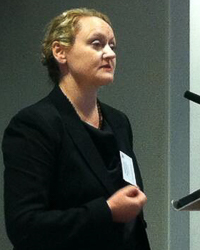
Arthur Benton Mid-Career Research Award Recipient
INS 2021 Mid-Year Meeting
Melbourne, Australia – June 30 – July 3, 2021
After brain injury, self-awareness refers to the ability to accurately recognise changes in one’s functioning and understand how these will affect everyday life and the future. Professor Ownsworth has been investigating self-awareness after brain injury for over 20 years. She has examined neurocognitive and psychological factors influencing self-awareness, identified distinct awareness ‘typologies’ and investigated the relationship between self-awareness and functional and psychosocial outcomes. Her clinical trials have contributed to practice standards concerning the use of metacognitive or feedback-based approaches and she has developed guidelines to support clinical decision making in practice. Her talk will discuss how self-awareness is a generally a positive attribute that is responsive to change through metacognitive skills training approaches. She will also outline the circumstances in which targeting the development of self-awareness is neither necessary nor beneficial.

Arthur Benton Mid-Career Research Award Recipient
INS 49th Annual Meeting
San Diego, Virtual Meeting – February 2-5, 2021
Since mid-20th century there has been increasing concern for older adults’ risk of cognitive complications after major elective surgery such as knee or cardiac surgery. Yet, there are still no accepted mechanisms for why some older adults experience post-operative cognitive complications. The topic is of increasing concern given: 1) at least 20% of older adults electing surgeries have signs of preoperative cognitive vulnerability; 2) individuals with neurodegenerative diseases will arrive at preoperative centers in exponentially larger numbers over the next 25 to 50 years; and 3) our healthcare systems extensive gap in evidence-based perioperative care for adults with Alzheimer’s disease and other progressive neurodegenerative disorders (e.g., PD). Catherine Price’s presentation will highlight NIH funded interdisciplinary clinical research addressing the complex and controversial topic of preoperative brain and cognitive profiles, pre to postoperative neuroimaging changes, and pre to postoperative cognitive-behavioral changes assessed with traditional and digital technologies. She will touch upon the gap in evidence based research addressing perioperative approaches for individuals with neurodegenerative disorders, and how neuropsychology is the ideal profession to spearhead interdisciplinary educational, research, and clinical training opportunities addressing this area of need.

Arthur Benton Mid-Career Research Award Recipient
INS 2020 Mid-Year Meeting
Virtual Event Meeting – July 1-2, 2020
Novel paradigms for the assessment of memory in ageing and dementia
Cognitive functions affected by dementia also decline in normal ageing and in several common age-related diseases. Such functions are sensitive to the cultural background of the affected individual. With the reconceptualization of dementia as a lifelong condition, increasing interest in its early detection and prevention, and emerging global initiatives to fight it, we are facing challenges of larger magnitude and different nature. Novel cognitive paradigms are urgently needed to meet such rapidly growing needs.
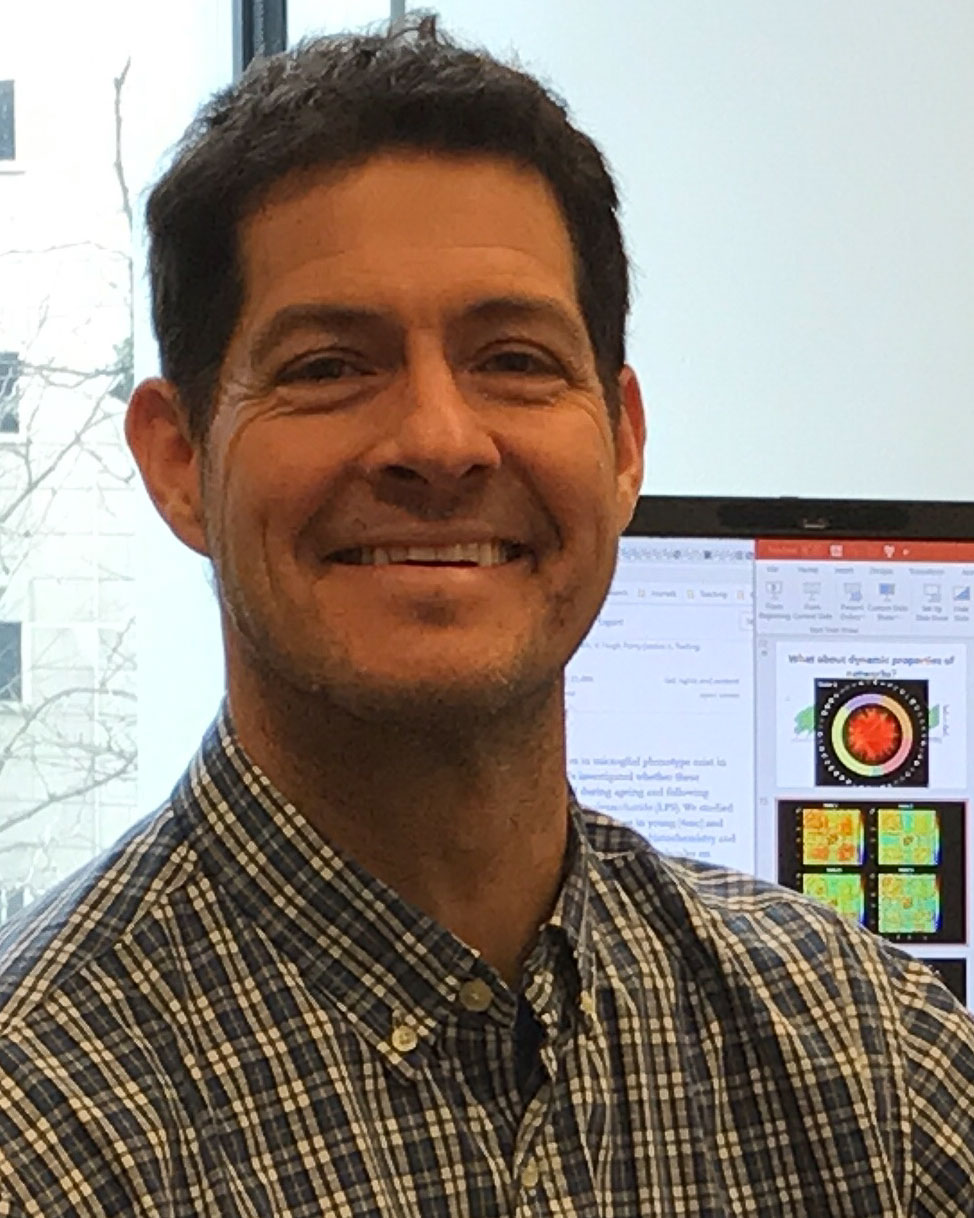
Arthur Benton Mid-Career Research Award Recipient
INS 48th Annual Meeting
Denver, Colorado, USA – February 5-8, 2020
There is no corner of modern science left untouched by the rippling effects of the “reproducibility crisis”. While concerns about scientific reproducibility are not new, dating back to the 1960s (see Meehl, 1967), a clear watershed moment in the social sciences was the 2015 paper published by Nosek and colleagues which made clear that successful replication of findings is indeed quite challenging, hovering at ~36% [Open Science Collaboration, 2015].
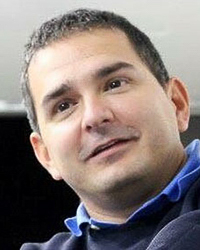
Arthur Benton Mid-Career Research Award Recipient
INS 2019 Mid-Year Meeting
Rio de Janeiro, Brazil – July 10-12, 2019
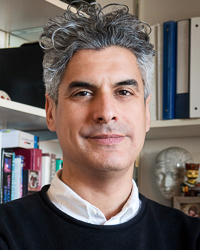
Arthur Benton Mid-Career Research Award Recipient
INS 47th Annual Meeting
New York City, New York, USA – February 20-23, 2019
The prevailing hypothesis about the pathogenesis of Alzheimer’s disease (AD) suggests a cascade of biological events initiated by abnormal beta-amyloid processing that leads tau-related neuronal dysfunction, neurodegeneration, and dementia. This conceptualization has directly informed current diagnostic schemes, which have evolved from diagnosing AD based on the characterization of a clinical syndrome to diagnosing AD based on the presence of amyloid and tau biological markers alone.

Arthur Benton Mid-Career Research Award Recipient
INS 2018 Mid-Year Meeting
Prague, Czech Republic – July 18-20, 2018
Since the advent of MRI, rapid advances in structural and functional imaging have presented significant opportunities for the role of the traditional neuropsychological assessment in epilepsy surgery programs. This presentation examines the ways in which the role of clinical neuropsychology has evolved and adapted in response to these challenges over the past 25 years.

Arthur Benton Mid-Career Research Award Recipient
INS 46th Annual Meeting
Washington, D.C, USA – February 14-17, 2018
Fueled in part by these findings, our laboratory has developed and (over two decades, elaborated) a cognitive neuroanatomical model of the mechanisms and architecture of a distributed two-stream network critical to the representation and selection of object-related actions. Called the “Two Action Systems Plus (2AS+)” framework, the model posits a complementary role for stored object manipulation knowledge (“action semantics”) and online computations, and specifies the neurocognitive substrates of task-relevant action selection.

Arthur Benton Mid-Career Research Award Recipient
INS 45th Annual Meeting
New Orleans, Louisiana, USA – February 1-4, 2017
Mid-life cardiovascular disease risk factors (CVD-RFs) such as hypertension (HTN) and diabetes (DM) and associated cerebrovascular disease contribute to late-life risk and development of dementia including Alzheimer’s disease (AD). Dr. Alzheimer himself was one of the first to speculate on the role of cerebrovascular disease on brain aging. The US population has changed since initial work in this area was conducted. For example, ~55 million Hispanics live in the US, representing 17% of the population; these numbers will more than double by 2060 to ~130 million or 31% of the US population.

Arthur Benton Mid-Career Research Award Recipient
INS 44th Annual Meeting
Boston, Massachusetts, USA – February 3-6, 2016
Multiple sclerosis (MS) is a demyelinating disease of the central nervous system characterized by relapses and gradual worsening of chronic neurological disability. Charcot described cognitive and personality changes in MS patients in 1877, but it would take a century for the quality and frequency of such impairment to be elucidated by Rao and others. Cognitive impairment occurs in 50-60% of MS patients, and dementia in roughly 15%. While the demyelinating WM lesion is the pathologic hallmark of MS, neuropsychological deficits are more robustly correlated with brain atrophy.

Arthur Benton Mid-Career Research Award Recipient
INS 2015 Mid-Year Meeting
Sydney, Australia – July 1-4, 2015
It is now well established that up to 70% of persons with multiple sclerosis (MS) suffer from cognitive impairment (Chiaravalloti & DeLuca, 2008). Such impairments can have a significant impact on everyday functional activity in persons with MS. Given the frequency and degree of cognitive involvement in persons with MS, and how it affects so many aspects of a person’s life (e.g., vocational, familial, social, emotional, cultural) the need for cognitive rehabilitation therapies and programs is clear.

Arthur Benton Mid-Career Research Award Recipient
INS 43rd Annual Meeting
Denver, Colorado, USA – February 4-7, 2015
In assessing human behavior, psychologists attempt to approximate the real life experiences and functional abilities of their subjects. This is perhaps most challenging for higher-order cognitive capacities, including memory and executive functions. Changes in these functions are central to society’s most costly clinical disorders, such as the dementias, neuropsychiatric conditions, and traumatic brain injury. Improving assessment of such disorders requires an interdisciplinary approach combining cognitive sciences, neuropsychology, and multimodal neuroimaging.

Arthur Benton Mid-Career Research Award Recipient
INS 39th Annual Meeting
Boston, Massachusetts, USA – February 2-5, 2011
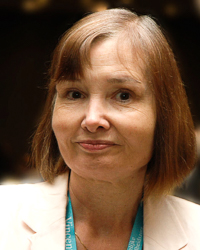
Arthur Benton Mid-Career Research Award Recipient
INS 31st Annual Meeting
Honolulu, Hawaii, USA – February 5-8, 2003
